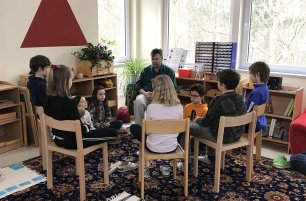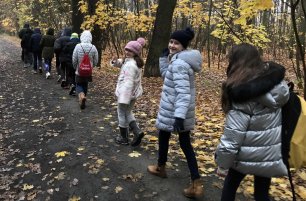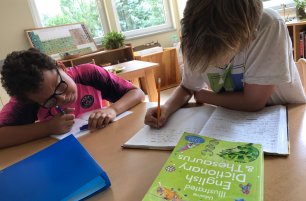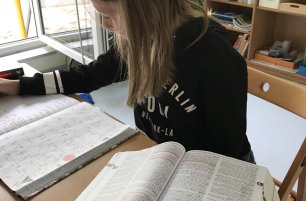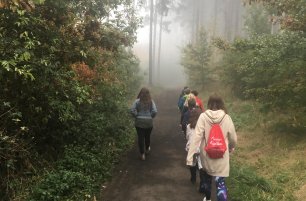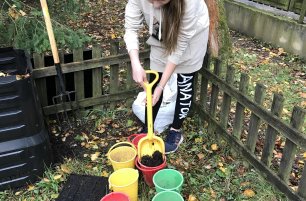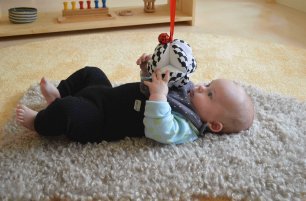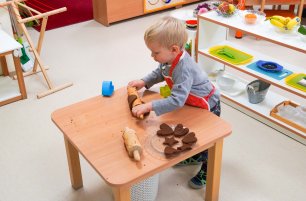Mindfulness: A Key Part of Our Elementary Curriculum
If you visit the Upper Elementary at IMSP on any school day in the late morning, you would hear a gentle bell ring at around 11:20. The students clean-up, and by 11:30, they gather on the classroom carpet and light a candle. A teacher sets a timer. At the sound of a bell, they begin their 5-minute awareness/mindfulness practice.
This is just one of the activities that the Upper and Lower Elementary participate in as a foundational part of fulfilling Maria Montessori’s Peace Curriculum as an extension of Grace and Courtesy – stillness, quiet, awareness, inner-peace, and focus. Like the traditional Montessori Silence Game, our daily awareness/mindfulness practices help students to take a moment to check in with themselves, to relax and reflect, and to transition into the second half of the day.

Below are some of the other activities the Elementary classrooms practice to foster peace and awareness:
Upper Elementary
Monday Formal Tea Ceremony
Each week on Monday mornings, the students and teachers sit and share tea and quiet music during Meeting Circle. The activity helps provide students with an opportunity to transition into the new week smoothly, share their experiences of the weekend, and to practice grace and courtesy skills while serving tea, listening attentively, and waiting their turn.
"You can calm down. I think of everything I did in the morning and then I put it aside. then I can flow into the next thing we do." / Jakub Tamas – Mindful Minutes with the candle
Weekly Forest Walk/Observation
Tuesday mornings the class takes a brief forest walk that includes a silent five-minute written nature observation. We also visit the tree we planted last year and check its health and growth.
"It makes us more aware when we listen for sounds, so we know what's going on around us and we notice more things.” / Andrej Maric – Nature walk and observation

Gardening and Composting
Students spend a few minutes outside Thursday mornings checking on our winter garden and turning compost, contemplative exercises into which the teachers weave science and cultural lessons.
Upper and Lower Elementary
Soft Feet/Silent Walking
Both the Lower and Upper Elementary students participate in lining up silently, and in “soft feet,” using mindfulness to be aware of how much noise and distraction we are making when just moving around, helping the children learn practical skills for the classroom environment.
Gratitude Before Lunches
As we begin our lunch each day, both groups of children collect their food and sit at their tables quietly. Each student waits to begin eating until all have been served, and then we ring a gentle bell and begin several minutes of gratitude when we contemplate the many hands that worked to bring it to us our meal. After our gratitude minutes, the students are free to chat with their friends communally.
Silent Worktime
For thirty minutes each day, after our meeting circles, each classroom practices thirty minutes of silent work time when students begin their self-planned academic work quietly, with focus and independence.
These are practices you can replicate at home. Give it a try; we’ve found that the students not only like many of them but that it really works in creating a calmer, more focused environment!
by Greg McCracken
Want to learn more? Read our next article:
